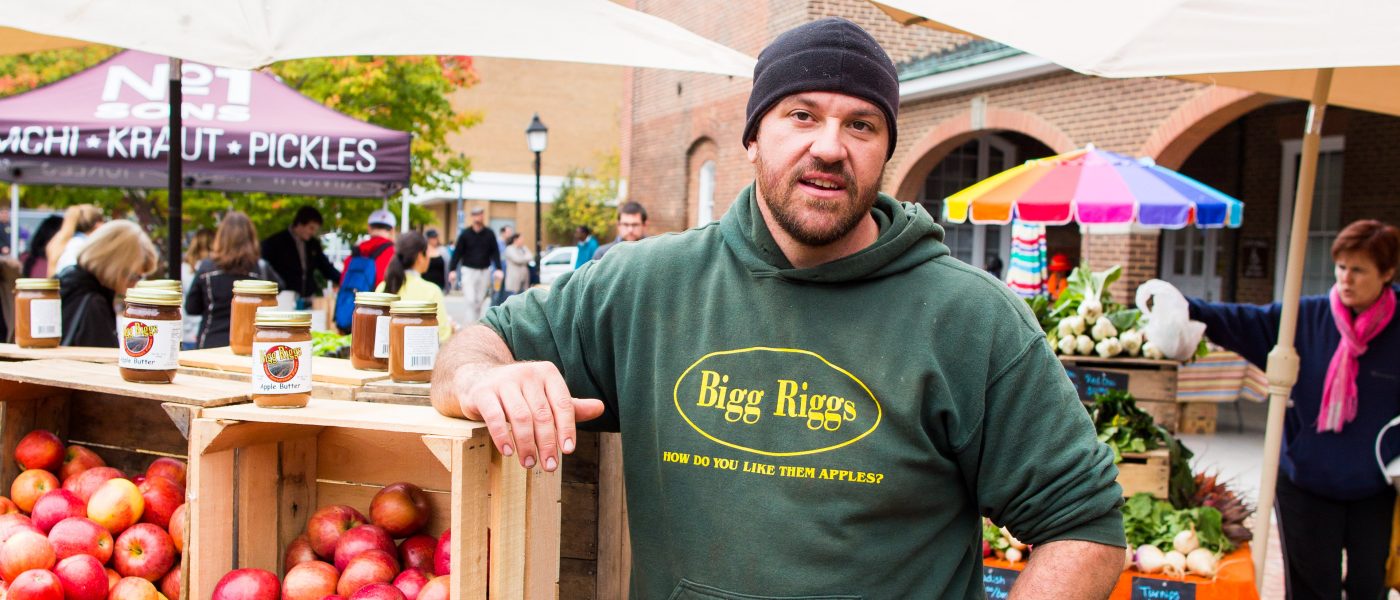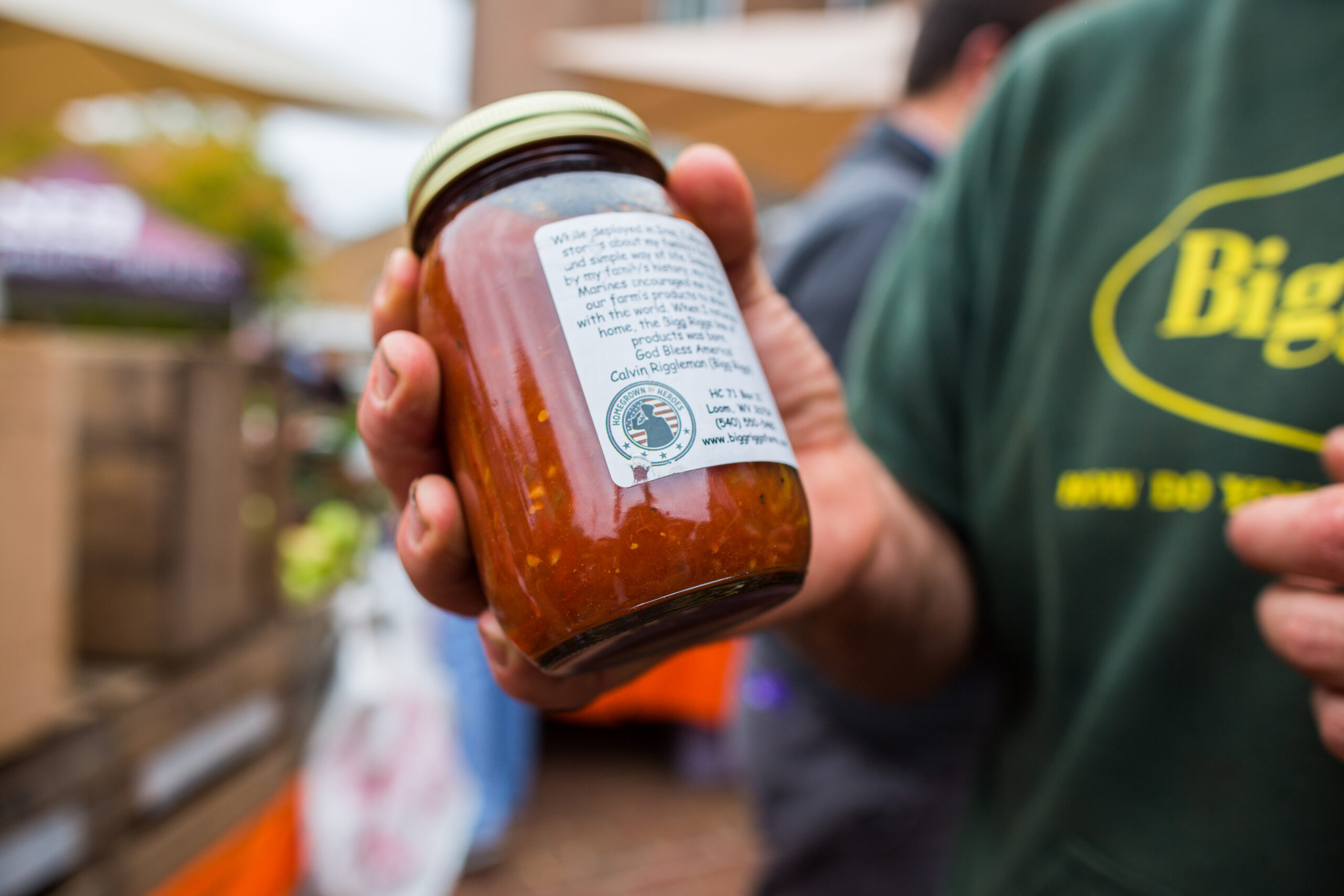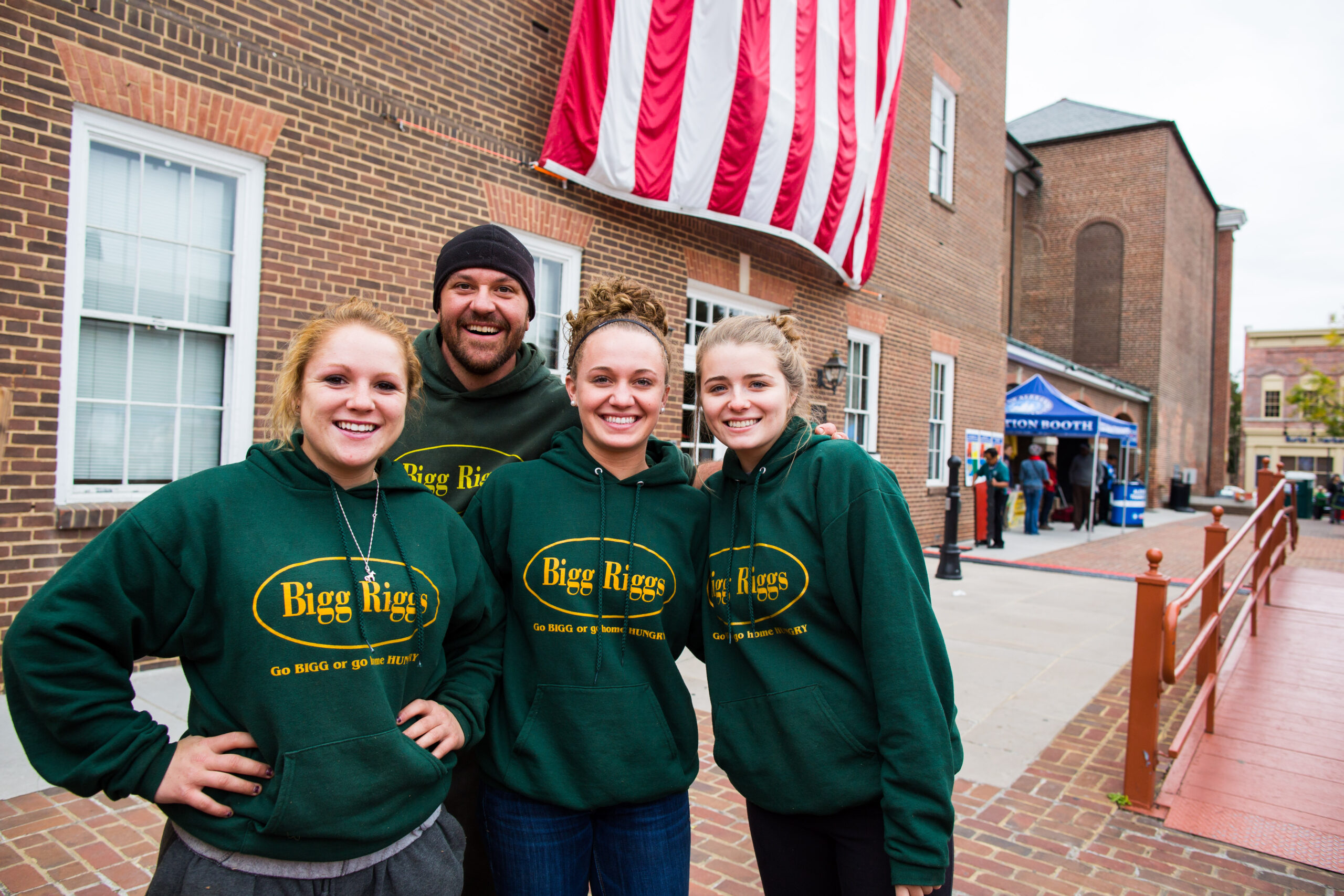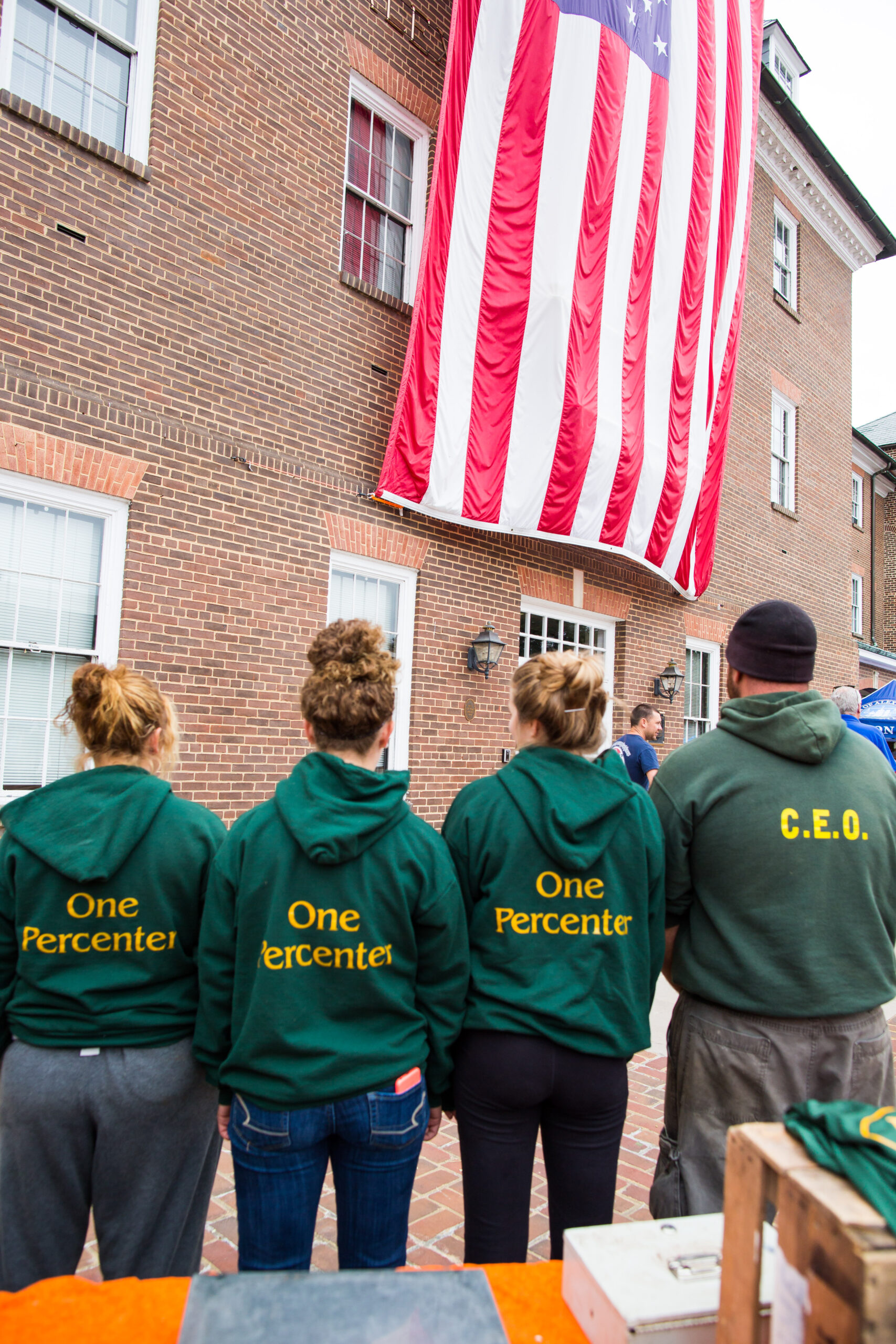When Calvin Riggleman left West Virginia for Iraq in 2003, he didn’t know what he would do upon his return. The farm he grew up on, which had supported his family since before the American Revolution, was not bringing in enough money to sustain another employee—a theme common on many family farms.
But Calvin wasn’t afraid to dream big or think outside of the box. During deployment in the U.S. Marine Corps, he bounced ideas around with his comrades, “Because that’s all that you think about when you’re gone: what you’re gonna do when you get home, things you can do to better yourself.”
Together under the hot desert sun, they devised a plan. Calvin’s main roadblock was seasonality—when the fruit season was over, so was the fruit stand. “The guys I was deployed with said, ‘Why not make value-added products like jams, jellies and sauces?’” They drew up a business plan and decided it was possible for Calvin to support himself as a farmer.
When he returned to Hampshire County, West Virginia, Calvin applied for a credit card and promptly maxed it out with supplies to test his friends’ theory. Armed with a truckload of peaches, jars and pectin, he went to a local commercial kitchen where he made peach jam.
To Calvin’s surprise, the jam garnered many times the price of the fruits alone. “I took it to my grandparents’ farm stand and sold it all in just a couple of weeks—I actually doubled my money.”
The magic behind value-added products is using imperfect produce that’s otherwise difficult to sell. Take the tomatoes that Calvin blends into his Bloody Mary mix, for example. He says, “I don’t use tomatoes that are bad, but ones that have a ding or a cut on them so we’re taking those tomatoes that sell for 30 cents a pound as juice tomatoes and after they’re turned into Bloody Mary mix they’re like seven dollars a pound.” On top of that markup, this product has a two-year shelf life, unlike the original fruits.
This concept has been working so well for Calvin that he now has 70 different products in his value-added line under his label, Bigg Riggs Farm. The name comes from his Marines handle.
With the start-up of Bigg Riggs Farm, Calvin was making money, but still not enough to fully support himself. That’s when Calvin remembered another tip that his city-dwelling Marine Corps buddies imparted: farmers’ markets. “You know, here in West Virginia, most everybody grows their own food. But in the city, a lot of people don’t have that option,” he says.
So Calvin, who previously had never heard of a farmers’ market, applied and became a vendor at three local markets (and now, sells at five markets in Northern Virginia and one in Washington DC near the White House). He took his jams, jellies and salsas to market, and purchased a parcel of land near his family’s farm to start growing his own fruits and vegetables. His plan was working. He was supporting himself as a farmer. Then the Marine Corps called again. Calvin deployed with his company back to Iraq in 2006.
“We’re taking those tomatoes that sell for 30 cents a pound as juice tomatoes and after they’re turned into Bloody Mary mix they’re like seven dollars a pound.”
But this time Calvin knew that he didn’t want to come home and start from scratch. Once again his mind was on his family farm, while geographically thousands of miles away. He ordered seeds while in the Middle East and sent them to his mom, and he arranged them to be planted in his high school’s greenhouses. Calvin remembers, “I did my deployment and came home, and that first day home I was out in the fields planting broccoli!”
Calvin learned a lot in the Marine Corps, particularly how to manage people. But, there’s a major difference: “I’ve actually had to change a good bit from the military to being a civilian because in the military I didn’t have a choice, these are the guys you got and this is what you have to do,” he says. “But in the civilian world if you don’t treat people fair, they don’t have to come to work.”
Calvin tries to be a reasonable boss among the physicality of farming and the long hours at the markets, which he says don’t make it easy. Calvin is particularly impressed by the hard work and persistence of his female employees, who are in the majority on his farm. “I guess there have been guys, but they just aren’t as mature, they’ve never lasted,” he says.
Calvin’s business ventures have continued to expand. He went on to buy the commercial kitchen that he was using to make his products, and now processes fruits and vegetables for 200 other farmers.
He doesn’t take his success for granted, particularly since he’s in the minority as a young farmer in this country. “I found out that as a nation we’re losing farmers,” he says. Calvin focuses on three numbers. The first is the average age of farmers, which continues to creep upwards, and is now at 58. He also mentions that around 1% of the U.S. population is in farming. “And then there’s me being a veteran, only 1% of the nation’s population serves in the military,” he expounds. To make his point loud and clear, he made up a batch of shirts that say: One Percenter. They strike up a lot of conversation at the market.
Calvin is joyful about his work and ability to stay in the family business. “I wake up every day wanting to go to work; I actually don’t feel like I go to work. I’m going to do this until I’m dead,” he comments.
He marches on through his vegetable fields and his fruit orchards, into his commercial kitchen and eventually out to the farmers’ markets, where his hard work and creativity pay off in significant ways. He hopes to inspire more young farmers to find a way to make a living on their family farms and raise the population of farmers higher than 1%.
Calvin sells his goods at markets in this year's Farm Aid concert region!






